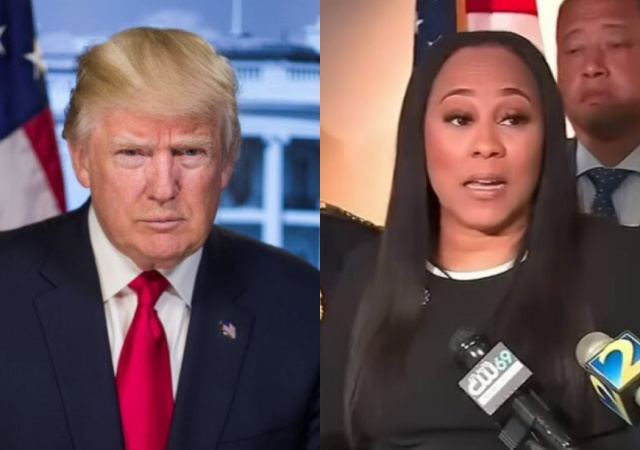Georgia Appeals Court Kicks Fani Willis Off Trump Election Case

The Court of Appeals of Georgia disqualified Fulton County DA Fani Willis from President-elect Donald Trump’s election case over her relationship with former special prosecutor Nathan Wade.
“The remedy crafted by the trial court to prevent an ongoing appearance of impropriety did nothing to address the appearance of impropriety that existed at times when DA Willis was exercising her broad pretrial discretion about who to prosecute and what charges to bring,” wrote the court.
Trump and some of his co-defendants argued Willis should be removed due to her relationship with then-Special Prosecutor Nathan Wade, citing a conflict of interest.
Judge Scott McAfee said Willis could stay if Wade stepped down.
Wade stepped down on that day.
The court noted it had to look at “particular facts and circumstances of each case while keeping some general principles in mind” since “appearance of impropriety” is not in Georgia law to disqualify the district attorney’s office.
The court mentioned bright-lined rules, which are objective rules “that resolve legal questions in a straightforward, predictable manner.”
Since there are no bright-line rules in Georgia law regarding this issue, the court looked at State v. Wooten, 273 Ga. 529, 531 (2) (543 SE2d 721) (2001), which explained that the district attorney has a “special duty” that means the office is held to a higher standard:
In our criminal justice system, the district attorney represents the people of the state in prosecuting individuals who have been charged with violating our state’s criminal laws. The responsibility of a public prosecutor differs from that of the usual advocate; [her] duty is to seek justice, not merely to convict. This special duty exists because the prosecutor represents the sovereign and should exercise restraint in the discretionary exercise of governmental powers. Therefore, the district attorney is more than an advocate for one party and has additional professional responsibilities as a public prosecutor to make decisions in the public’s interest.In the district attorney’s role as an administrator of justice, he or she has broad discretion in making decisions prior to trial about who to prosecute, what charges to bring, and which sentence to seek.
“While we recognize that an appearance of impropriety generally is not enough to support disqualification, this is the rare case in which disqualification is mandated and no other remedy will suffice to restore public confidence in the integrity of these proceedings,” the court concluded.
Trump requested to dismiss the indictment.
However, the appeals court said despite Willis’s “significant appearance of impropriety,” it could not “conclude that the record also supports the imposition of the extreme sanction of dismissal of the indictment under the appropriate standard.”
The trial court, which also refused to dismiss the indictment, ruled that the evidence did not show “that the Defendants’ due process rights have been violated or that the issues involved prejudiced the Defendants in any way.”
So, what is next? Another prosecutor will take over. That prosecutor can determine to continue the case or throw it out.
CLICK HERE FOR FULL VERSION OF THIS STORY